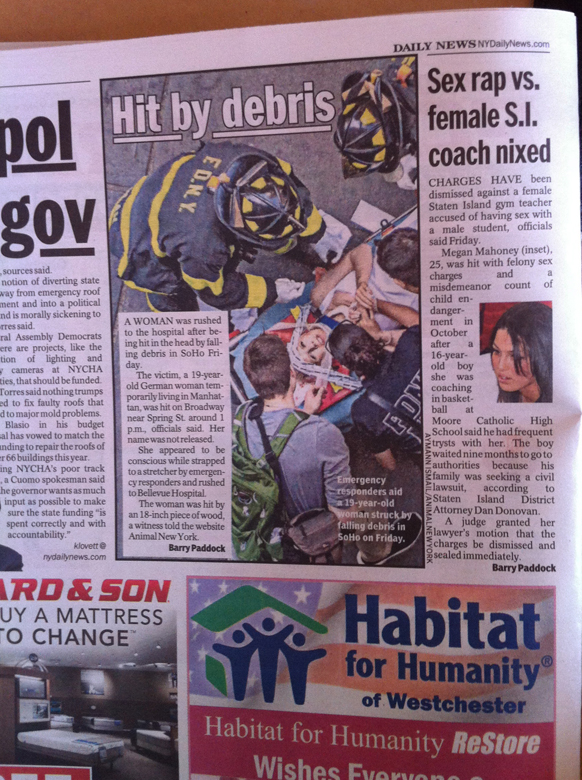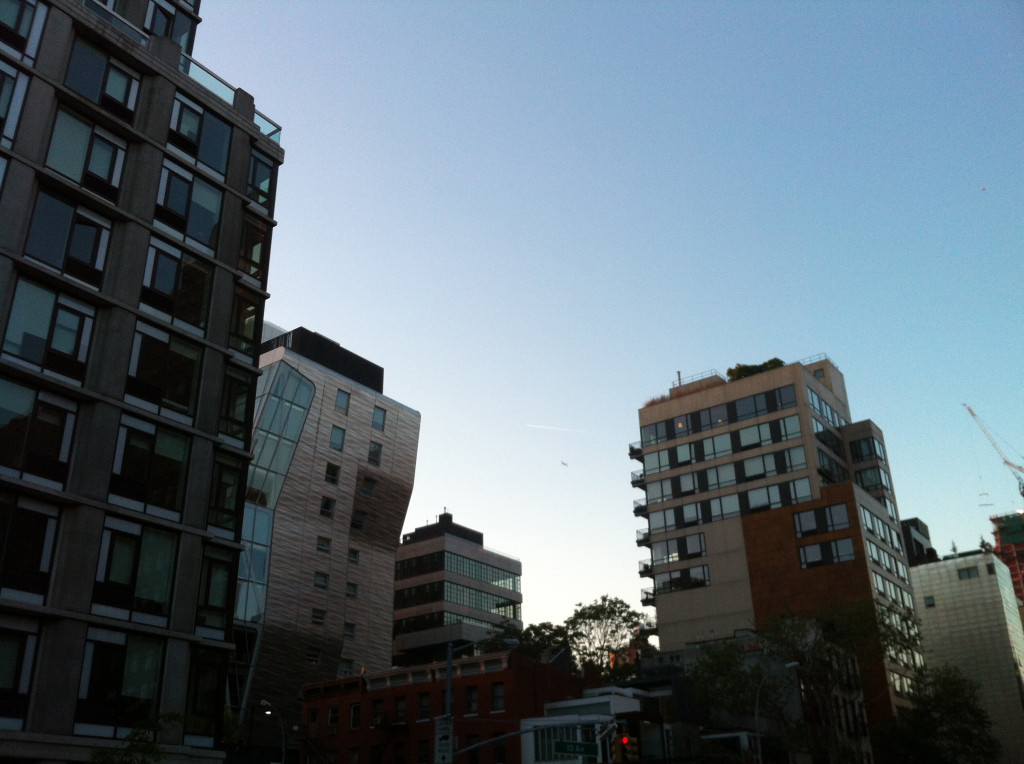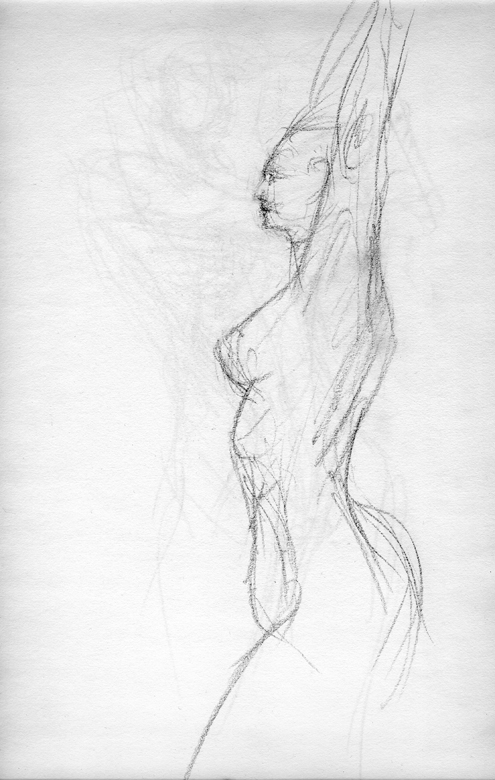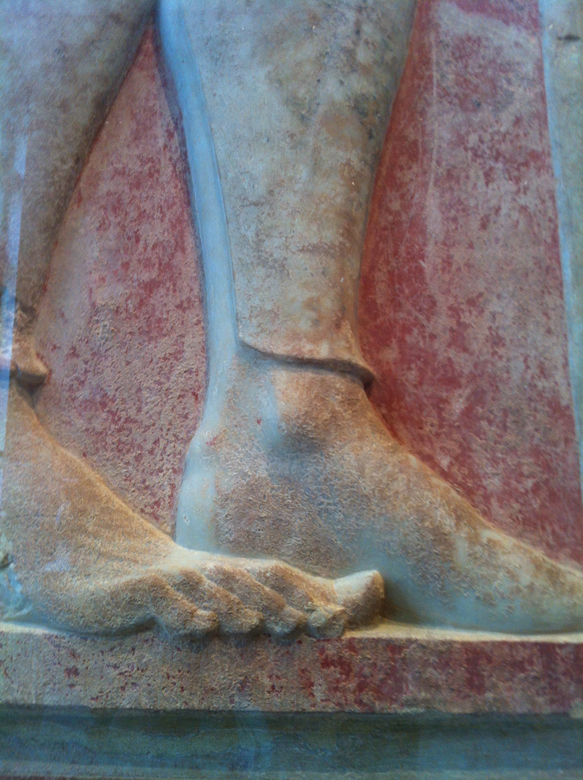CIV
It seems to me that one potentially fruitful way to articulate the underlying nature of the East-West divide is to compare ideas drawn from Greek philosophy with a daoist understanding of the relation between oppositional forces. As inheritors of the Greek tradition, we in the West generally think of oppositional forces as being mutually exclusive, and therefore irreconcilably hostile to one another, as though they were two tribes competing to occupy the same territory. The classical idea of two, heavily-armed phalanxes meeting on a cleared plain in a single, swift and decisive combat exemplifies this zero-sum approach: the more powerful force annihilates, drives out, or subjugates the weaker.
The daoist approach departs from a different premise: it assumes that oppositional forces are complementary aspects of an indivisible whole. Yin and yang, polar expressions of this duality, remain fluidly bound together in a constant, endless cycle of change.
In this mode of thought, oppositional forces interpenetrate and counterbalance one another. Hence the guiding principle becomes one of regulation, invoked to manage opposing tendencies so that they never disarticulate into fully separated extremes, but conjointly and cyclically wax and wane, fill and empty, push and pull, always in relation to one another. Change, and modification, then, are the visible, manifestations of nature’s endless realignment of forces toward dynamic equilibrium (or controlled disequilibrium – such as that which we experience in walking).
Of course, one could say that a definitive imbalance does occur when an individual organism dies. Nevertheless, a cyclical and generative interaction of vital forces continues to operate within countless more-or-less material concretions of yin and yang energies that ceaselessly continue on. Thus death is contained within the infinitely processive unfolding of what is. There is no gap.
Put at its most distilled, daoists view the ongoing play of opposing forces as manifestations of an enduring One which continually gives birth to, embraces, nurtures and sustains the “ten thousand things” – the world we humans inhabit, and beyond which there is not, nor need be, another.
Positing the East-West dynamic in terms of complementary vs. annihilatory energies as I have done above poses a rarely asked question about whether the dualism that Western philosophy has attempted in various ways both to preserve and to suture is as total as our idealizations would lead us to believe. Is it possible that the West never fully seceded from the “union” of all things – not all things under God, but rather all things in and of their intrinsic inextricability. Did the split rail not quite fall in twain? Could, practically speaking, Western practice, and Western thought (again the split) really function if there weren’t some “corruption” in the system, some “race” mixing of the high and low, sacred and profane, heart and mind, gut and brain, spirit and body, even within the Jim Crowlike nature of our conceptual schema. How could we bake the daily bread of existence without some play, some ease, some invisible fermentation?
What if it took only a slight turning, what if the drawing together were recognized as counter balance to the drawing apart. What if reality were already ordered and we didn’t have to do that job. What if the prisoners simply decided they weren’t in jail? And the governor realized that all he can really do is attend to his breath?
Throw a Darton at the map…
Dazed and bemused
For me the tragedy’s most important act is the sixth:
the raising of the dead from the stage’s battlegrounds,
the straightening of wigs and fancy gowns,
removing knives from stricken beasts,
taking nooses from lifeless necks,
lining up among the living
to face the audience.
The bows, both solo and ensemble –
the pale hand on the wounded heart,
the curtsies of the hapless suicide,
the bobbing of the chopped-off head.
The bows in pairs –
rage extends its arm to meekness,
the victim’s eyes smile at the torturer,
the rebel indulgently walks beside the tyrant…
[From Wisŧawa Szymborska, “Theatre Impressions,” Poems: New and Collected. Stanislaw Baranczak and Clare Cavanagh, trans. New York: Harcourt, Inc., 1998]
Just before the State Police and Troopers “retook” Attica, Bill Gaiter of the observer’s group told Commissioner Oswald that “the inmates knew it was the institution and the troopers who had the helicopters and guns. D-yard was the only place the inmates had any power. Rather than submit themselves to the institution’s power… ‘they’re going to reserve one ounce of manhood and die like men.’” Wicker notes that Gaiter was “speaking with great power and emotion, and he added, apparently in reference to possible deaths among the inmates, ‘I don’t think there’s a problem in this world that’s worth taking a father from his family.’” [ATTD, p. 257]
ARF, NOT, ROT
Anger, Rage, Frustration. Natural Order of Things. Rational Order of Things.
ART
Anger, Rage, Tension.
There but for the grapes of wrath go I
Interstices, mon amour.
What are the fascia of consciousness?
The musclestendonsligamentsbonesorgans.
The anatomy
Mona moor
Waiting for Rachmaninoff
I teach, and study, at EastSouthNorthWestern University
Paranoia para mí
Paranoia para ti
Paranoia para nosotros
¡Paranoia para todos!
On the roofs of A- and C- blocks, officers were quietly assembling state police teams of marksmen qualified with the service’s standard .270 rifle – a big game weapon that fired an unjacketed, soft lead expanding bullet with sufficient accuracy to hit a five-inch target at 800 to 1000 yards. Team members lay prone on the roofs to stay out of sight of D-yard. On the third floors of the same buildings, other rifle teams, similarly armed, were assembling with equal caution. These four sets of marksmen were instructed to provide covering fire, once the action began, for two attack units of 30 troopers each, all armed with pistols and Ithaca Model 37 five-shot, pump-action, 12-gauge shotguns. These attack units, then forming on the second floors of A- and C- blocks, were to move out on the open walkways atop the passageways that ran at right angles from the two cell blocks to meet at Times Square. [ATTD, p. 273].
Ah, Times Square: crossroads of the world.
Property isn’t just theft. It’s death.
It’s a dog eat God world
Metanoia strikes deeper
Far between sundown’s finish and midnight’s broken toll
We ducked inside the doorway, thunder crashing
As majestic bells of bolts struck shadows in the sounds
Seeming to be the chimes of freedom flashing
Flashing for the warriors whose strength is not to fight
Flashing for the refugees on the unarmed road of flight
And for each and every underdog soldier in the night
And we gazed upon the chimes of freedom flashing
In the city’s melted furnace, unexpectedly we watched
With faces hidden while the walls were tightening
As the echo of the wedding bells before the blowin’ rain
Dissolved into the bells of the lightning
Tolling for the rebel, tolling for the rake
Tolling for the luckless, the abandoned an’ forsaked
Tolling for the outcast, burnin’ constantly at stake
And we gazed upon the chimes of freedom flashing…
[Dylan]
A day in the life of Denise Ivanovich. Hunh?!
I was an epiphenomenon for the FBI
Across 22nd Street heading toward the café, amidst the locust and pear trees, newly leafed out, a true canticle of birds.
In 1692, in the Court of Oyer and Terminer in Salem Town, more than a dozen people were convicted of witchcraft on the basis of “spectral evidence,” i.e. the nocturnal appearance of the accused in ghostly form to torment the witness.
Did schools in Massachusetts Bay Colony teach spectral ed. as part of their common core?
A canticle of Bards. And Bardots.
Mix and morph
Q: How do you spell CIA?
A: G-o-o-g…
Through the mad mystic hammering of the wild ripping hail
The sky cracked its poems in naked wonder
That the clinging of the church bells blew far into the breeze
Leaving only bells of lightning and its thunder
Striking for the gentle, striking for the kind
Striking for the guardians and protectors of the mind
And the unpawned painter behind beyond his rightful time
And we gazed upon the chimes of freedom flashing
Through the wild cathedral evening the rain unraveled tales
For the disrobed faceless forms of no position
Tolling for the tongues with no place to bring their thoughts
All down in taken-for-granted situations
Tolling for the deaf and blind, tolling for the mute
Tolling for the mistreated, mateless mother, the mistitled prostitute
For the misdemeanor outlaw, chased and cheated by pursuit
And we gazed upon the chimes of freedom flashing…
[Dylan]
Whatever mitigates the woes or increases the happiness of others, this is my criterion of goodness; and whatever injures society at large, or any individual in it, this is my measure of inequity. Said Robert Burns.



